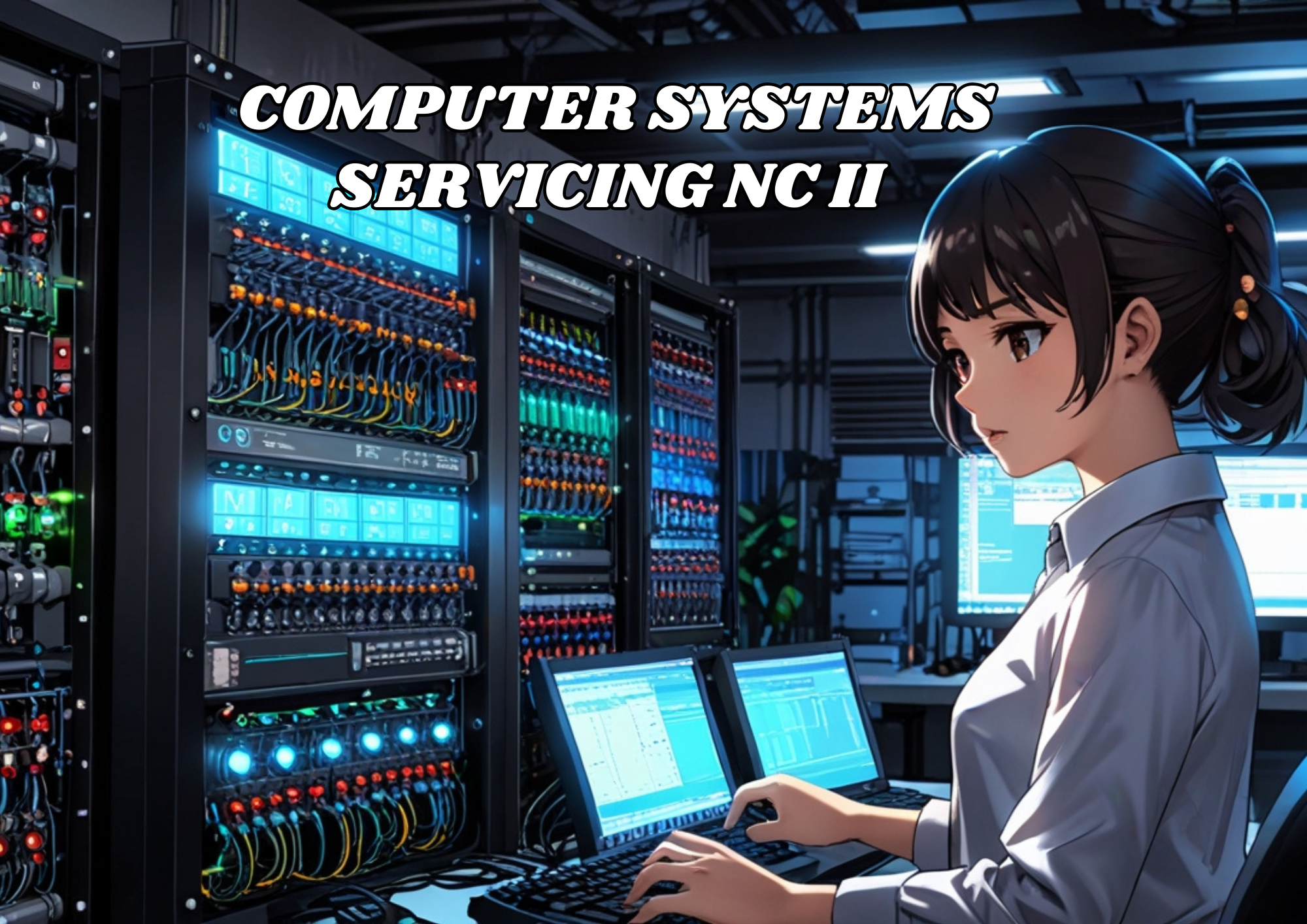
This course provides students with the knowledge and skills needed to install, maintain, and repair computer systems and networks. It covers both hardware and software servicing, including troubleshooting and configuring computers and basic networking. It aligns with industry standards and is designed to prepare learners for employment in ICT-related jobs or entrepreneurial ventures.
Core Competencies:
-
Installing and Configuring Computer Systems
-
Assembling and disassembling hardware
-
Installing operating systems and application software
-
Performing basic configuration and system setup
-
-
Setting Up Computer Networks
-
Installing network cables and devices
-
Configuring local area networks (LAN)
-
Basic wireless setup
-
-
Setting Up Computer Servers
-
Installing server hardware and software
-
Configuring file, print, and web servers
-
-
Maintaining and Repairing Computer Systems and Networks
-
Diagnosing and troubleshooting hardware/software issues
-
Performing preventive and corrective maintenance
-
Documenting services and repairs
-
Basic Competencies:
-
Participating in workplace communication
-
Working in a team environment
-
Practicing career professionalism
-
Observing occupational health and safety practices
Common Competencies:
-
Applying quality standards
-
Performing computer operations
Duration:
Nominal training duration is 280 hours, but this may vary depending on the training institution.
Career Opportunities:
-
Computer Technician
-
Network Support Technician
-
Technical Support Specialist
-
ICT Specialist
-
Freelance Computer Servicer